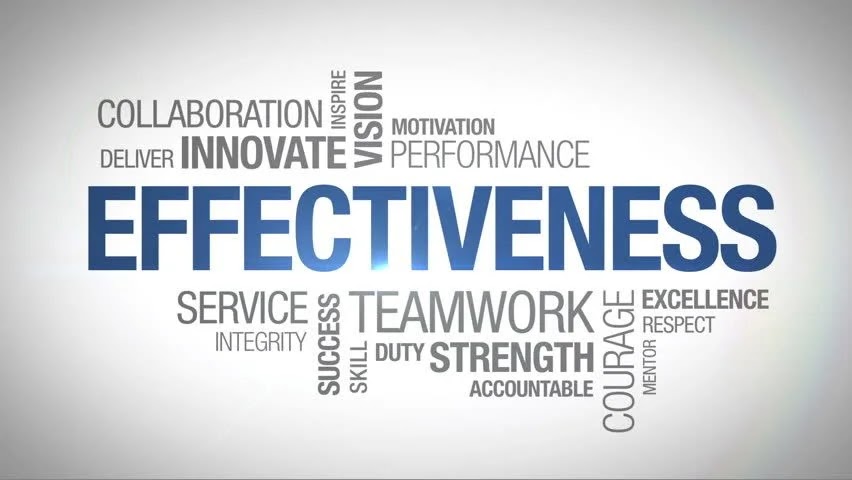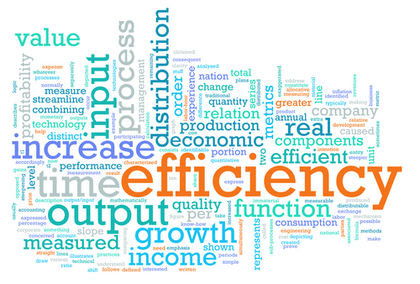Striking the Balance: Effectiveness vs. Efficiency in Project Management
- February 6, 2024
- Posted by: bhushanpungliya
- Categories: Blog, Consulting

In the realm of project management, two critical factors often stand at the forefront: effectiveness and efficiency. Both play pivotal roles in determining the success of a project, yet understanding the nuanced difference between them is key to harnessing their potential effectively.

Effectiveness encapsulates the idea of achieving objectives, fulfilling goals, and delivering desired outcomes. It’s about doing the right things—the strategies, actions, and decisions that align with the overarching purpose of the project. On the other hand, efficiency revolves around optimizing resources, minimizing waste, and maximizing output in terms of time, money, or effort. It’s about doing things right—the methods and processes that streamline operations and enhance productivity.
The debate between effectiveness and efficiency often prompts the question: which should be prioritized for project success? The answer lies in a delicate balance between the two.
Prioritizing effectiveness ensures that the project stays aligned with its core objectives. It involves strategic planning, clear goal-setting, and constant evaluation of whether the project is on the right track. While it may not always yield immediate gains in terms of time or resources, it ultimately drives meaningful progress towards the project’s intended purpose. On the flip side, focusing solely on efficiency might lead to a hyper-focus on optimization at the cost of losing sight of the project’s primary goals. A process might become incredibly efficient but if it’s not contributing to the overarching objective, it’s merely a wasted effort.
The impact of effectiveness and efficiency on Indian businesses is substantial, influencing various aspects of operations, growth, and competitiveness.
Effectiveness in Indian businesses is often tied to strategic alignment and goal achievement. For companies in India, being effective means more than just achieving short-term profits; it involves aligning actions with long-term objectives. Indian businesses that prioritize effectiveness focus on:

Impact on Indian Business:
- Strategic Vision: Effectiveness involves setting a clear vision and mission that align with the evolving market landscape and societal needs. Indian companies aiming for sustained success invest in understanding customer demands and adapting strategies accordingly.
- Innovation and Adaptability: Effectiveness in Indian businesses often thrives on innovation. Companies that continually innovate and adapt their products, services, and operations stay ahead in competitive markets. The ability to pivot swiftly in response to market changes or technological advancements is a hallmark of effective Indian businesses.
- Customer-Centric Approach: Indian businesses are increasingly recognizing the significance of being customer-centric. Companies that prioritize customer satisfaction and experience tend to succeed by building strong relationships and loyalty, which contributes to long-term success.
While effectiveness sets the direction for businesses, efficiency determines how well they navigate towards those goals. In the Indian business landscape, efficiency impacts:

- Cost Optimization: Efficiency plays a crucial role in cost management. With a focus on efficiency, Indian businesses optimize resources, streamline processes, and reduce wastage, enhancing their competitiveness in cost-sensitive markets.
- Operational Excellence: Efficient operations lead to improved productivity. Indian businesses that streamline their workflows, leverage technology for automation, and adopt lean methodologies often achieve higher productivity levels, leading to better output with fewer resources.
- Scale and Growth: Efficiency enables scalability. Indian businesses that efficiently manage growth by scaling operations, supply chains, and systems are better equipped to handle expansion while maintaining quality and profitability.
The blend of effectiveness and efficiency is essential for Indian businesses to thrive in a dynamic and competitive environment. Those that strike the right balance effectively utilize resources while staying aligned with their strategic goals, thereby increasing their resilience and ability to weather market fluctuations. Moreover, as India undergoes digital transformation and embraces technological advancements, the convergence of effectiveness and efficiency becomes even more critical. Businesses leveraging technology to enhance both their effectiveness in meeting market demands and their efficiency in operations are poised to lead in India’s rapidly evolving business landscape.
Finding the equilibrium between effectiveness and efficiency involves a thoughtful approach. Here are a few strategies to strike that balance:

- Clear Goal Setting: Define clear and measurable project goals. This acts as a compass, guiding efforts towards what truly matters.
- Continuous Evaluation: Regularly assess progress against the project’s objectives. This allows for course correction and ensures that efficiency gains align with the project’s effectiveness.
- Adaptability and Flexibility: Embrace adaptability within processes. Sometimes, the most efficient path might need alterations to maintain effectiveness as project dynamics change.
- Resource Optimization: While efficiency aims at resource optimization, it’s crucial to allocate resources where they contribute most effectively to the project’s goals.
Ultimately, the focus should be on what generates the greatest impact for the project. It’s not about choosing between effectiveness and efficiency, but rather integrating both into the project management process. When effectively integrated, efficiency supports effectiveness by ensuring resources are utilized optimally to drive towards the desired outcomes.
Conclusion:
Effectiveness and efficiency are not mutually exclusive concepts; they complement each other in the pursuit of project success. Striking a balance between the two ensures that projects not only stay on track but also utilize resources wisely to accomplish their intended objectives. By recognizing the significance of both aspects and integrating them harmoniously, project managers can navigate towards impactful and successful project outcomes. The symbiotic relationship between effectiveness and efficiency significantly influences the trajectory of Indian businesses. While effectiveness sets the strategic direction and long-term vision, efficiency ensures that the journey towards those goals is optimized, utilizing resources judiciously.
In India’s dynamic business landscape, success isn’t solely about achieving short-term gains; it involves a delicate balance between meeting objectives and optimizing operations. The effective integration of both elements is crucial for sustained growth, innovation, and competitiveness. Indian businesses that prioritize effectiveness focus on long-term strategies aligned with evolving market demands, innovation, and customer-centric approaches. Conversely, those emphasizing efficiency strive for operational excellence, cost optimization, and scalability. However, the true power lies in the synergy of both factors. Companies that harmonize effectiveness and efficiency leverage their strengths to adapt swiftly, innovate boldly, and optimize resources judiciously. This balance equips them to navigate challenges, seize opportunities, and drive sustainable growth in India’s rapidly evolving business landscape. As India continues its journey of economic growth and digital transformation, businesses that master the interplay between effectiveness and efficiency will be best positioned to not just survive but thrive, contributing significantly to the nation’s economic development and global competitiveness.
